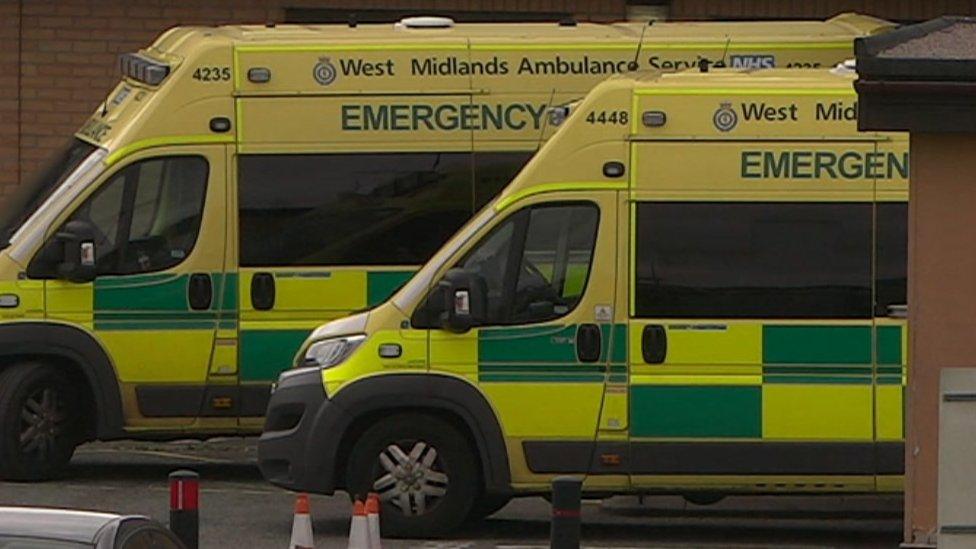Warwickshire mother calls for action on ambulance delays after son dies
- Published
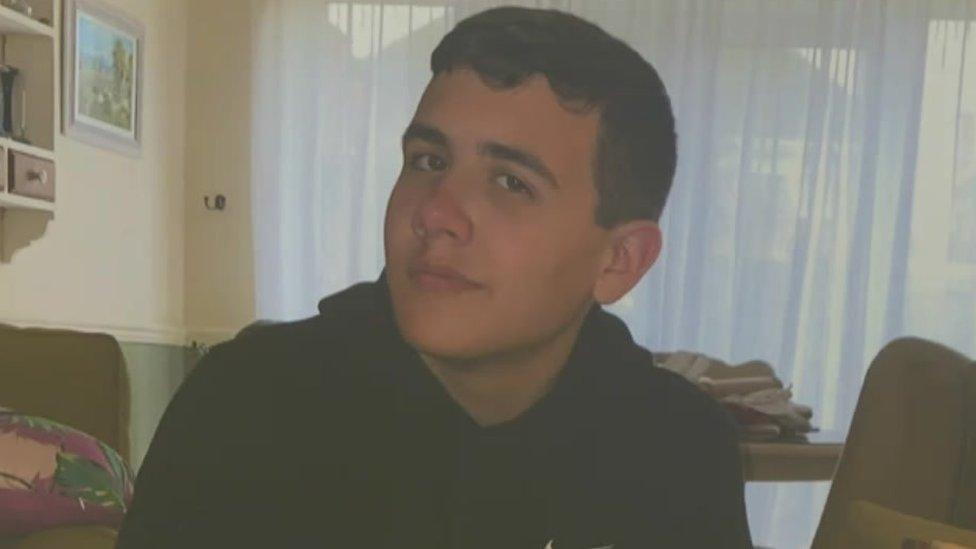
Jamie's mother says he had no underlying health issues
A mother has called for ambulance response times to be improved after her son died from a cardiac arrest.
Jamie Rees, 18, from Rugby, in Warwickshire, was left waiting more than 17 minutes for an ambulance on New Year's Day.
"We have been told it was due to a sudden change in the rhythm of Jamie's heartbeat," said Naomi Rees-Issitt.
West Midlands Ambulance service (WMAS) said it had sent the nearest available ambulance.
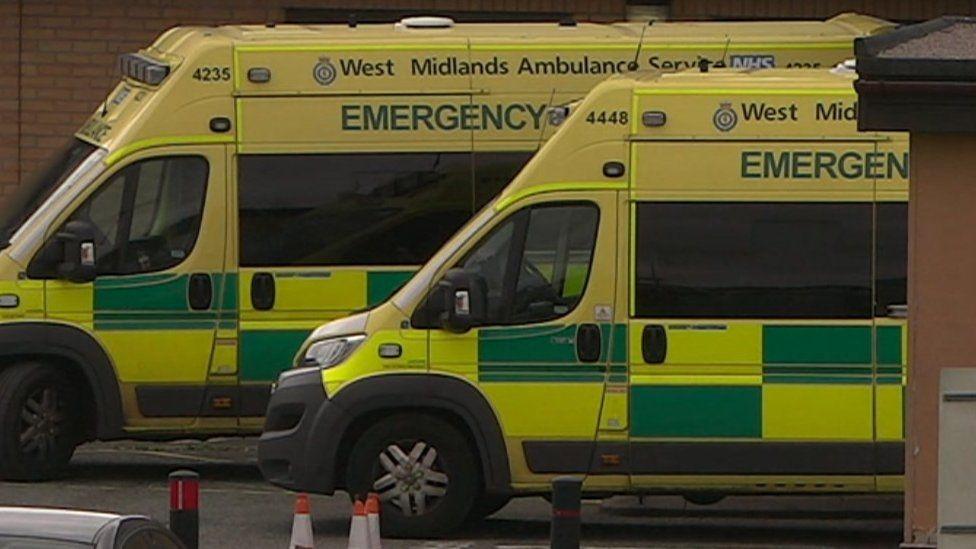
The ambulance service says it has targets to reach all cardiac arrest patients in seven minutes, and 90% of them should be reached within 15 minutes
Jamie had returned home from watching fireworks with his friends when he suddenly suffered a cardiac arrest.
The ambulance service says it has targets to reach all cardiac arrest patients in seven minutes, and 90% of them should be reached within 15 minutes.
The crew reached Jamie 17 minutes and 33 seconds after the first call.
"He didn't deserve for this to happen," Ms Rees-Issitt said.
"I can't imagine how soul-destroying it is for that ambulance crew who reached Jamie after 17 minutes, knowing they were never going to save him."
WMAS said in the hour before it had received the first 999 call to Jamie, there had been five other emergency calls in the Rugby area, which would have meant any ambulances based in the town would already have been with a patient.
The service has provided the family with a timeline of events and sent a copy of the patient report form.
It added a further investigation report would also be provided.
"Our thoughts remain firstly with Jamie's family as they come to terms with what has happened," it said.
"Long hospital handover delays impact our ability to get to patients quickly, which is why all NHS partners are working together to reduce them."
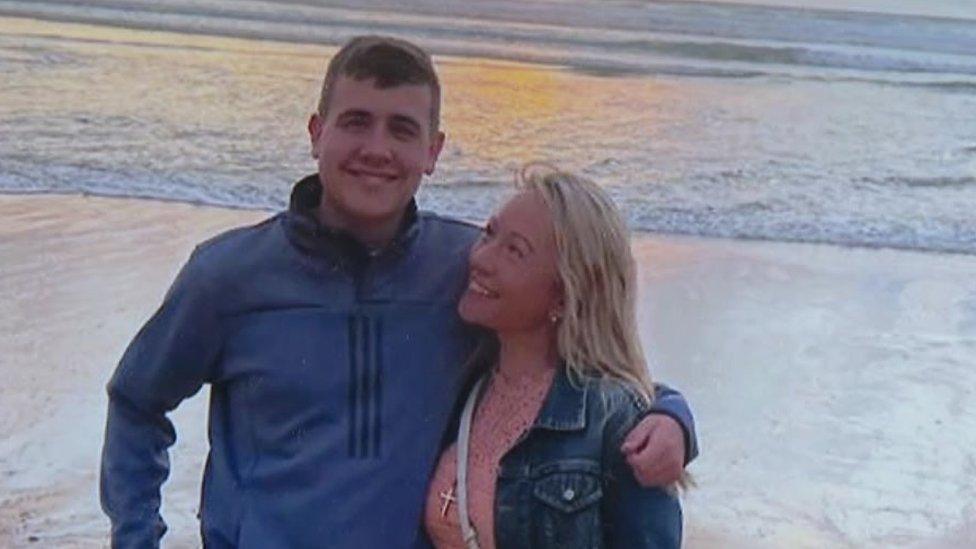
Ms Rees-Issitt says Jamie died due to a sudden change in the rhythm of his heart
The 18-year-old, who was training as a plumber, signed up to the organ donor register aged 16. Five of his organs were donated following his death.
The family has also set up an online fundraising page to pay for a defibrillator in his memory.
Before the first ambulance arrived, WMAS said police officers had got to the family home and used a defibrillator three times on him.
The service said it welcomed the family's campaign to install more defibrillators in and around the town.
"If someone has a cardiac arrest, immediate CPR by bystanders and early defibrillation are the key to saving more lives," it said.

Follow BBC West Midlands on Facebook, external, Twitter, external and Instagram, external. Send your story ideas to: newsonline.westmidlands@bbc.co.uk, external
Related topics
- Published19 May 2022
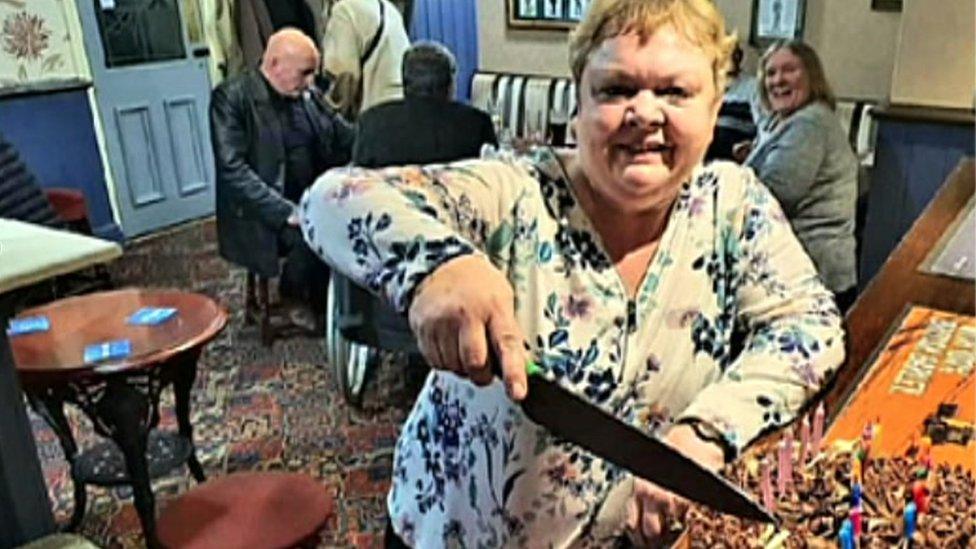
- Published29 March 2022
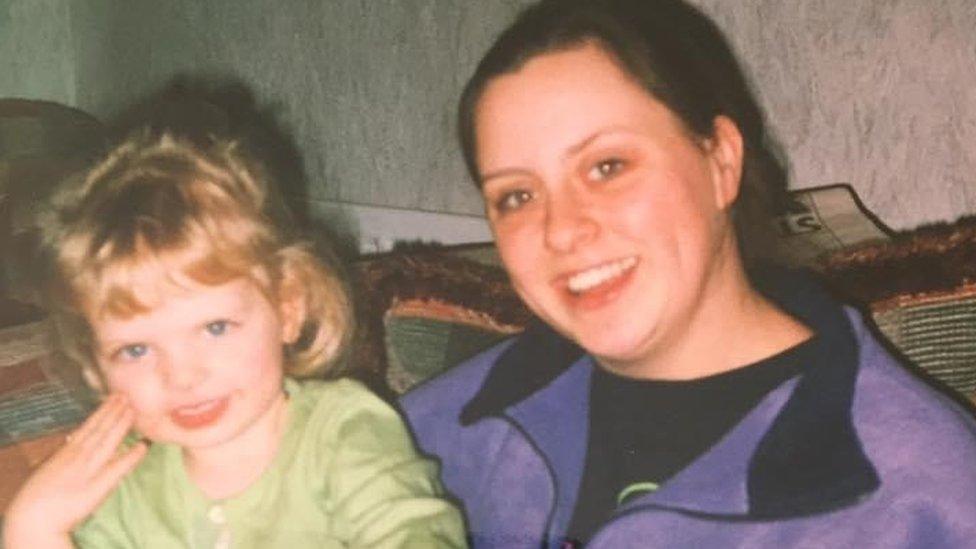
- Published6 April 2022
